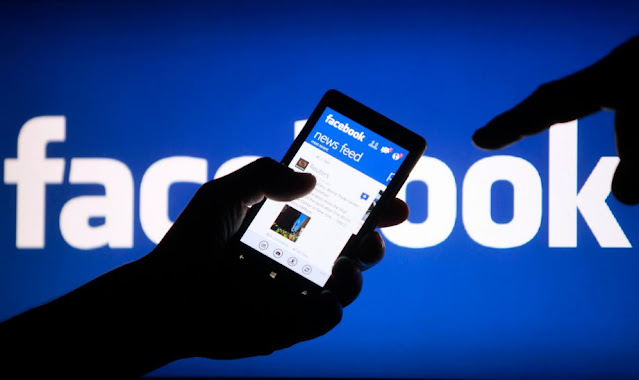Meta, the parent company of social media giants Facebook and Instagram, has signaled that users in Nigeria could soon lose access to its platforms as the company struggles to navigate stiff regulatory headwinds and financial penalties imposed by Nigerian authorities.
Court documents filed by Meta reveal a stark ultimatum: unless regulatory pressures ease and massive fines are re-evaluated, the company may be compelled to shut down Facebook and Instagram operations in Nigeria. This development places millions of Nigerian users and countless small businesses that depend on these platforms in a state of uncertainty.
The confrontation stems from a series of penalties levied by three major regulatory bodies in Nigeria, culminating in fines exceeding $290 million. Meta has challenged these sanctions, but the Federal High Court in Abuja recently dismissed its appeal. With the deadline to comply fast approaching — set for the end of June — the social media behemoth faces a critical decision.
Among the most significant penalties was a $220 million fine issued by the Federal Competition and Consumer Protection Commission (FCCPC), accusing Meta of engaging in anti-competitive practices. The exact nature of these practices has not been publicly detailed, but the FCCPC noted they were based on findings from a joint investigation with the Nigerian Data Protection Commission (NDPC), spanning over two years from May 2021 to December 2023.
Additional financial hits include a $37.5 million fine from Nigeria’s advertising regulator, citing Meta’s deployment of unapproved advertising content, and a $32.8 million fine from the NDPC for alleged breaches of Nigeria’s data privacy laws.
At the heart of the dispute lies a contentious demand by the NDPC: that Meta must obtain explicit approval from Nigerian authorities before transferring any personal data outside the country. Meta views this requirement as not only burdensome but operationally unfeasible, suggesting that it misrepresents how international data flows function within digital infrastructure.
Court documents reveal that Meta’s core concerns revolve around the NDPC’s interpretation of Nigeria’s data protection framework. The company accuses the commission of overreaching, arguing that the regulatory body has imposed impractical and overbearing demands that could jeopardize Meta’s operations in one of Africa’s largest digital markets.
In addition to the data transfer stipulations, the NDPC also instructed Meta to produce and display educational video content — co-created with government-approved institutions and non-profit organizations — to inform Nigerian users about the risks of data misuse. These videos would need to emphasize how certain data practices could potentially expose individuals to health and financial vulnerabilities. Meta, in its response, dismissed the requirement as unrealistic and accused the agency of failing to align its expectations with global digital standards.
While Meta owns several platforms, including WhatsApp, its legal filing and public statements have so far made no mention of the messaging service, which remains widely used across Nigeria. The company’s silence on WhatsApp has raised questions about whether the app could continue to operate independently, even if Facebook and Instagram are withdrawn from the market.
The implications of a potential withdrawal are vast. Facebook is the most widely used social media platform in Nigeria, serving as a hub for personal communication, community organization, news distribution, and economic activity. For countless small businesses, especially online vendors and service providers, Facebook and Instagram serve as primary marketing and sales tools. A sudden shutdown would disrupt their operations and sever vital consumer channels.
The regulatory fallout also signals a broader tension between global tech giants and African governments asserting digital sovereignty. Nigerian regulators appear determined to ensure that international companies adhere strictly to national laws governing competition, advertising, and data use — even if such compliance proves difficult for companies built on global scalability.
FCCPC chief executive Adamu Abdullahi has defended the government’s position, stating that the findings from the multi-year investigation revealed invasive and potentially exploitative practices that affected Nigerian consumers. However, details remain scant on what these invasive actions entailed.
As the clock ticks toward the court-imposed deadline, Meta’s options appear limited. The company has yet to publicly commit to its next steps, and a request for comment by the BBC reportedly remains unanswered.
This regulatory clash may mark a watershed moment in how global digital platforms operate within emerging markets. Whether it ends in compromise or a full-scale withdrawal, the standoff between Meta and Nigerian authorities is poised to redefine the boundaries of corporate accountability and data governance in Africa’s tech landscape.













![Content Creator Angelica Kelechi Speaks Out on Alleged Sexual Assault at Khloe Abiri’s Spa [VIDEO]](https://blogger.googleusercontent.com/img/b/R29vZ2xl/AVvXsEgQStip4cn2DAOvQ2hNFU30OAFWoxfQIDOnStd0uVgwwxKrFAQYYvtFni6QV04OGP8dyKk5TCAhXM5es9linl1ClhjPzaazz2tTt0LmJ5lFVe5202o2McF9QROT1v2hEyNTdY-M1KRuLTY6OqqysKNfcsY5bCtwCIP8wEQ4AXcfQfTaXWWZiixqf82NDH5a/w72-h72-p-k-no-nu/abiri-khloe123.jpg)

![Bello El-Rufai Questions Discrepancy As Boko Haram Terrorist Gets 20Years While Nnamdi Kanu Receives Life Sentence [VIDEO]](https://blogger.googleusercontent.com/img/b/R29vZ2xl/AVvXsEiWSu8zIQCe1XyQUKpvkUYY03fJRFWUlJkrlvEZioStBVV0gT0uVjMg64uBqblrA0aTyaQ4RD8mhelxNq7VGPBtsNFzDl9sS880MvdKXa2d964PDDf9atDRlVMzCw2qE7vtqGj1NNyq2IVC6d3c4qqdeGP6QgwPUInkpB3rWonFU75SMJfs-ql5uH7IzchQ/w72-h72-p-k-no-nu/Bello-El-rufai1123.jpg)




0 Comments
Hey there! We love hearing from you. Feel free to share your thoughts, ask questions, or add to the conversation. Just keep it respectful, relevant, and free from spam. Let’s keep this space welcoming for everyone. Thanks for being part of the discussion! 😊